Bloody November Families Form Association To Call For Justice
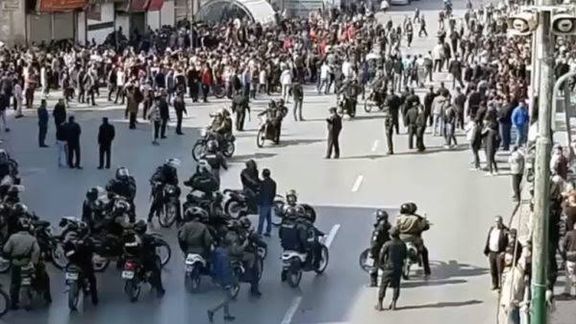
Family members of the victims of the November 2019 protests have formed an association to call for justice, the Aban Families For Justice.

Family members of the victims of the November 2019 protests have formed an association to call for justice, the Aban Families For Justice.
The new victims' association aims to keep the issue of the brutal crackdown of 2019 in the public mind and lobby for justice through activities including preparing an archive of documentation, holding anniversaries and commemoration events for the victims, and filing cases at the international courts.
A series of nationwide protests in Iran, known as Bloody November, took place in 2019. Initially triggered by a 50 to 200-percent increase in fuel prices, the demonstrations quickly turned into calls for the overthrow of the government and Supreme Leader Ali Khamenei.
According to a report by a rights group, at least 3,000 protesters were killed by the Islamic Republic security forces from November 15 to 17, and nearly 20,000 arrested. Reuters at the time reported 1,500 deaths.
"Due to the widespread crimes of the Islamic Republic in Bloody November, it was not possible to communicate with all the families during the past 43 months. This association was formed with the cooperation of a number of families, but it belongs to all the freedom-loving people of Iran,” the group said in a statement.
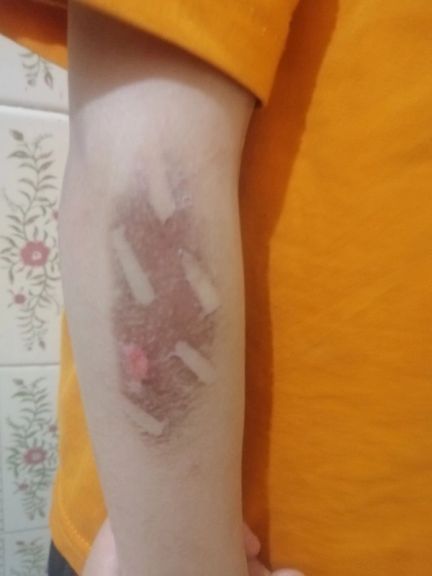
After an Iranian daily published a report about the harrowing ordeal of dozens of kids in a state orphanage run by clerics, the authorities have pressured the newspaper to redact its article.
Iranian journalist Mohammad Bagherzadeh said in a tweet on Monday that sources of the report, one of whom was a former employee of the state charity organization, were contacted and threatened.
Without saying who contacted the sources, Bagherzadeh said they told them either they rescind their statements or would be charged with insulting the clergy. He added that one of the sources was called in by the judiciary earlier in the day.
The original report was published by Etemad newspaper on June 11, revealing cases of child abuse at an orphanage operating under the supervision of the State Welfare Organization of Iran.
The operations of the center,whose employees were reportedly clerics, were suspended after the report published by the daily was also confirmed by several other sources.
In one of the cases, the clerics who were working as social workers put burning-hot clothing-iron on the hands and feet of a seven-year-old child as a punishment for bedwetting. Then they imprisoned him in an old bathroom infested with cockroaches and he was fed with dry bread and water for about a week.
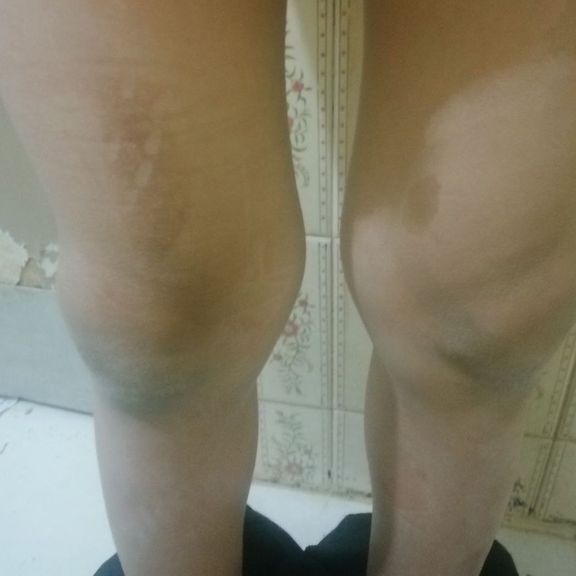
According to one of the sources, who blew the whistle after he was fired from the center, the situation of all the 24 children kept at the orphanage for the past eight years were suffering from somewhat similar abuse.
For example, the clerics had devised a scoring system to evaluate the behavior of the children, subjecting them to serious psychological torture.
The accounts of these abuses and their validity were also confirmed by other sources, who also used to work there.
One of the sources was cited by Etemad as saying that "The children of the center were strangely afraid of one of the managers, who himself explained the reason for this fear: Since the early days, I scared the hell out of the children, so they would know who’s the boss here. I told one of the kids that I would cut his tongue and hit him on the mouth repeatedly until it was full of blood; and now these children are afraid of me like death.”
Another source told the paper that in one of the cases, a child was so traumatized by the physical and psychological sufferings inflicted by one of the female managers of the center that wanted to commit suicide, but he was finally dissuaded from any high-risk behavior and was put to sleep with a pill.
Mohamamd-Javad Hosseini, one of the senior officials of the State Welfare Organization of Iran, said that the center was given a warning and was only suspended temporarily because there were no prior complaints against it. The guardianship of the children was terminated, and new staff took control of the center, he added.
Reports of such abuses are usually buried by authorities but even with all the coverups the number of cases that made headlines is very high. The most recent case took place less than a month ago, when the manager of a center was arrested for abuse of handicapped children in the city of Shiraz.
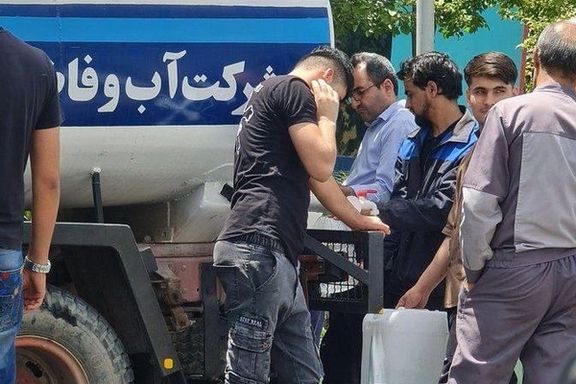
Citizens of Tehran and Karaj had drinking water cuts for the fourth day in a row this week as the situation worsens.
While the Tehran Water and Sewage Company recently promised the water issue in the capital would be solved, it spread to new neighborhoods with many communities having no access to drinking water.
According to citizens, it’s been over 72 hours since the residents of Motahari, Sattar Khan, Vanak and other neighborhoods have been complaining about frequent water cuts.
Mohammadreza Bakhtiari, the former CEO of Tehran Water and Sewerage Company has spoken out against the supply issues, claiming about one-fifth of the city's drinking water is wasted due to the worn-out water supply network.
However, in a bid to divert blame, the regime advises the population to be responsible, urging that a more frugal use of water is the way to resolve the issue.
In recent years, many cities across the country witnessed scenes of massive protests against the authorities’ mismanagement of water resources or harmful dam building and politically motivated diversion of rivers that have devastated agriculture and drinking water sources.
Iran has been suffering from drought for at least a decade and officials have been warning of a further decrease in precipitation.
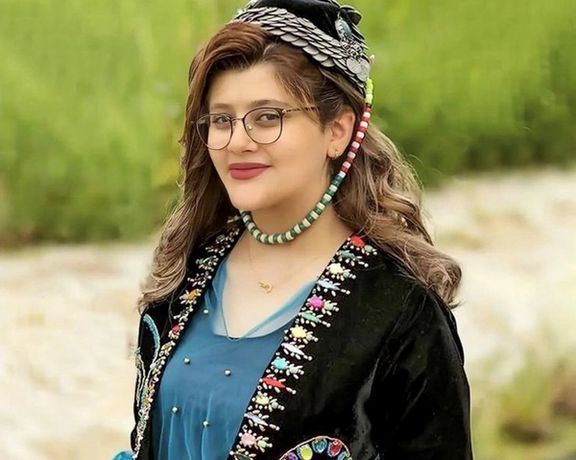
Protests continued in the Iranian Kurdish city of Saqqez following damage by regime supporters to Mahsa Amini’s grave last month.
Businesses shut down in protest at the damage to the grave in Aichi cemetery which they have now hidden from view, Amini having become a symbol of the months of uprising since the 22-year-old Kurd was murdered in morality police custody in September.
Amini has become the face of the ‘Woman, Life, Freedom’ movement and the damage at the grave site sparked fury, with regime agents now totally concealing it from view for fear it had become a shrine to the movement’s martyr.
The cemetery has become a common scene of demonstrations against the state-sanctioned murder of protesters since September, many laid to rest alongside Amini.
Last Friday, dozens of victims’ families held pictures of their loved ones in peaceful protest while in a heavy handed response, regime agents arrested and transferred about 40 of them to an unknown location, including six mothers of young victims.
In recent months, the agents of the Islamic Republic have destroyed the graves of those killed in the nationwide protests in different cities of Iran.
The regime has a history of destroying the Khavaran cemetery in the past, and the families of those executed in the 80s have repeatedly protested this.
The cemetery is in southeast Tehran and an unmarked mass graveyard where at least dozens of executed prisoners are buried. Families of victims visit the cemetery regularly and lay flowers, although no one is certain about the exact identity of those buried in Khavaran.

Regime agents in Iran shot and killed a relative of a 9-year-old boy murdered during protests in November, as people gathered at his grave to mark his birthday.
The boy, Kian Pirfalak died when security forces fired at his family car for no apparent reason. Almost overnight, the child became a symbol of regime brutality on social media and during street protests.
Sunday was his 10th birthday and the people of his town Izeh, in the oil-rich province of Khuzestan, tried to gather at the cemetery to commemorate him but faced both regular police and forces sent by the Revolutionary Guard which had deployed in the town to prevent possible protests.
Pouya Molaei-Rad, an 18-year-old student and cousin of Kian’s mother was shot and killed by security agents near the cemetery in unclear circumstances. Eyewitnesses say that there was a confrontation with the police. A video showed the multiple gunshot wounds on the chest.
The government immediately alleged that the young man was driving toward the cemetery when he hit three security personnel and was shot multiple times, dying in hospital later. But the wounds on the victim's chest seem like straight shots, which many people see as evidence that he was not shot inside the car.
The circumstances of the shooting are not entirely clear. Some say he was caught off-guard by the sudden appearance of security forces on the road as he was driving, while the government says he intentionally ran over security agents.
Nevertheless, the incident has turned into a rallying cry for all regime opponents in Iran and abroad.
The child victim and his 18-year-old relative come from the large and fiercely independent Bakhtiari tribal people, which have to a large extent become urbanized, but maintain kinship loyalties.
Their killings will for a long time antagonize ethnic Bakhtiaris toward the Islamic regime. In the tribal culture, no one can rest until revenge is exacted for the killing of a blood kin.
As Kian Perfalak was laid to rest on November 18, his mother Mahmonir (Zaynab) Molaei-Rad made a fiery speech at her son’s grave. She conveyed a strong message of protest against Supreme Leader Ali Khamenei who she seemed to hold directly responsible for her son’s killing.
Iranian opposition figures abroad issued messages Sunday as soon as the news of Molaei’s killing emerged.
Exiled Prince Reza Pahlavi tweeted: “The criminal regime has murdered another of our youth. The name of Pouya Molai-Rad, this young Bakhtiari patriot, has become eternal. This child-killing regime, however, is not eternal.”
He added that the “evil” regime “will be removed and the perpetrators of the murder of Iranian children and youth will face trial. This is a national and unbreakable promise.”
Alireza Akhondi, an Iranian-born member of Sweden’s parliament and an active opposition figure said in a Persian tweet that the day when the “criminal regime will be toppled with the will of the people” is not too far away and vowed that the perpetrators of regime crimes will be held responsible.
US-based opposition figure Masih Alinejad tweeted that even family members of Moalei-Rad and Pirfalak have been arrested after Sunday’s incident.
“The Islamic Republic has become one of the world’s top executioners of its own citizens. The only way the clerical regime has engaged with an educated youthful society is through the muzzle of a gun,” Alinejad said.
Hossein Ronaghi, an opposition activist in Iran and a former political prisoner praised Mahmonir Molaei-Rad, saying that Kian’s mother “is the darling of hearts in Iran…”
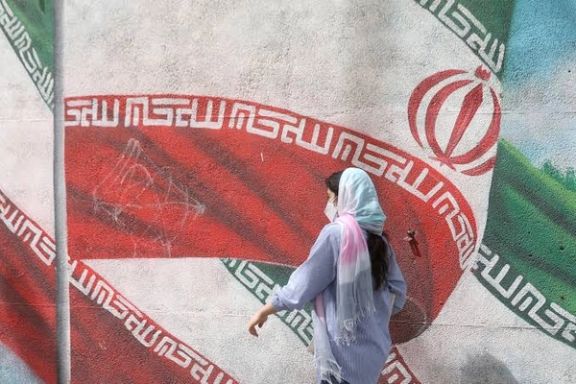
Friday prayer Imams loyal to the Iranian regime have defended government policies in their sermons to intervene in women's lifestyle, especially enforcing hijab.
On the other hand, reformist clerics suggested that the government had better stop putting religious pressure on citizens to “guide them to heaven.”
The Imam in Tehran, Mohamad-Javad Haj-Aliakbari, said that "the enemy" is spreading nihilism in Iran, adding that "In a year when we are getting close to the Majles [parliament] and Assembly of Experts elections, the enemy is trying to sow despair and heresy in Iran."
The term enemy, regularly used by Supreme Leader Ali Khamenei and his loyalists, refers to the United States. By making this statement the Friday Imam was attributing Iranian women's defiance to compulsory hijab to a conspiracy by the United States.
Iranian clerics and regime officials invariably attribute their failures in various cultural, political and economic areas to the United States or the pre-revolution government that was replaced by the Islamic Republic 44 years ago.

The Tehran Imam said the West is waging a cultural onslaught against Iran to stop the country's progress in areas such as missile development. Meanwhile he accused Iranian women of not being chaste enough as they follow the West's teachings.
In another development Ahmad Alamolhoda, the Friday Prayers Imam of Mashad said: "The Islamic revolution's aim was not simply feeding the people and improving the economy. We did not simply want to give political control to the pious and expel US mercenaries from Iran. The aim was to allow the people to live freely."
However, Alamolhoda. a staunch supporter of compulsory hijab and one of the biggest defenders of clerical rule in Iran did not explain how the Islamic Republic or his own ideology would let people live freely. Meanwhile he praised the Islamic Republic's "achievement" in developing a “supersonic missile” that can reach Israel in less than 10 minutes.
Alamolhoda is the father-in-law of President Ebrahim Raisi and enjoys some influence with Khamenei.
As if he was responding to Alamolhoda,Sunni Leader Mawlana Abdolhamid, who led the Friday prayers in Zahedan, said, "Good for you if you can make missiles, but you need to feed the people first." His comment was a reference to Iran's economic crisis that has been pushing millions of Iranians under the poverty line particularly during the past two years.
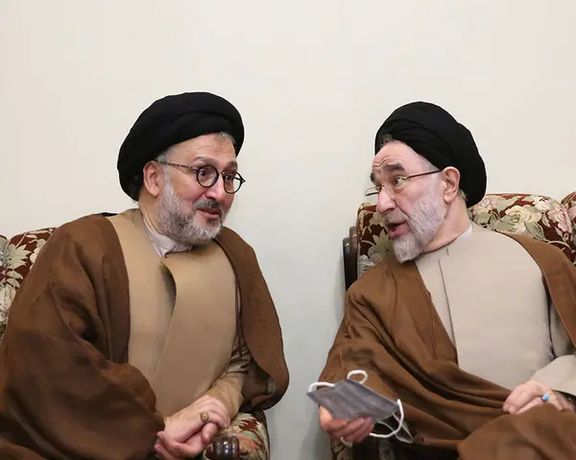
Meanwhile, Iran's former reformist President Mohammad Khatami criticized the government's approach to hijab and hardliner clerics such as Alamolhoda's insults against Iranian women who brand women without hijab as "unchaste." Khatami said: "Hijab and chastity are two different things," adding that hardliner "clerics should not impose the hijab on the Iranian society."
He pointed out that hijab is a matter of choice, and it should not be imposed on women. He suggested that hardliners should avoid imposing "backward" ideas on the society. He added that "Islam should respond to the needs of the modern world." Khatami further stressed that "Women need to be respected if we wish to move toward a better future."
Khatami said: "You should be a human being first and then decide whether you want to be a religious person." He reiterated that there should be no difference between men and women in terms of freedom and dignity and we understand that there will be no limit to our growth."
Meanwhile, Khatami's former chief of staff, Mohammad Ali Abtahi said: "The affairs of the state cannot be furthered by forcing the people and pushing them into paradise, but some of the country's decision-makers believe that this is a good way of running the country and anyone against it should be suppressed." He called on the government to respect the preferred lifestyle of young Iranians.